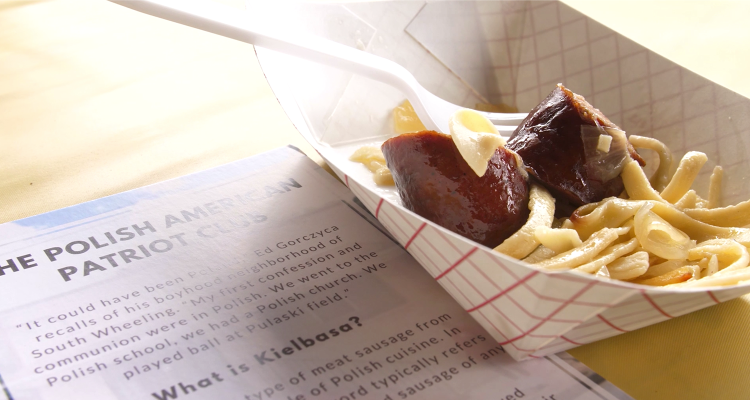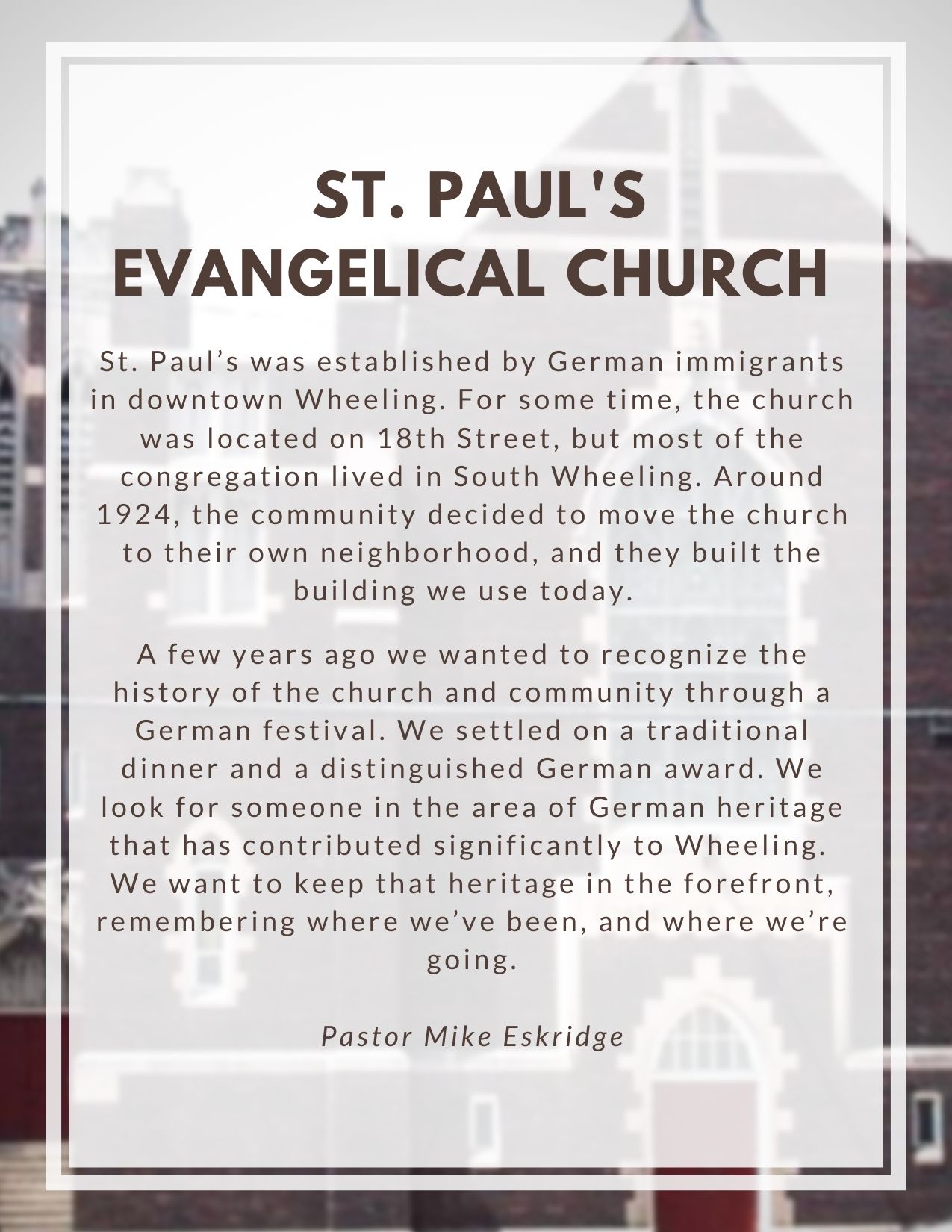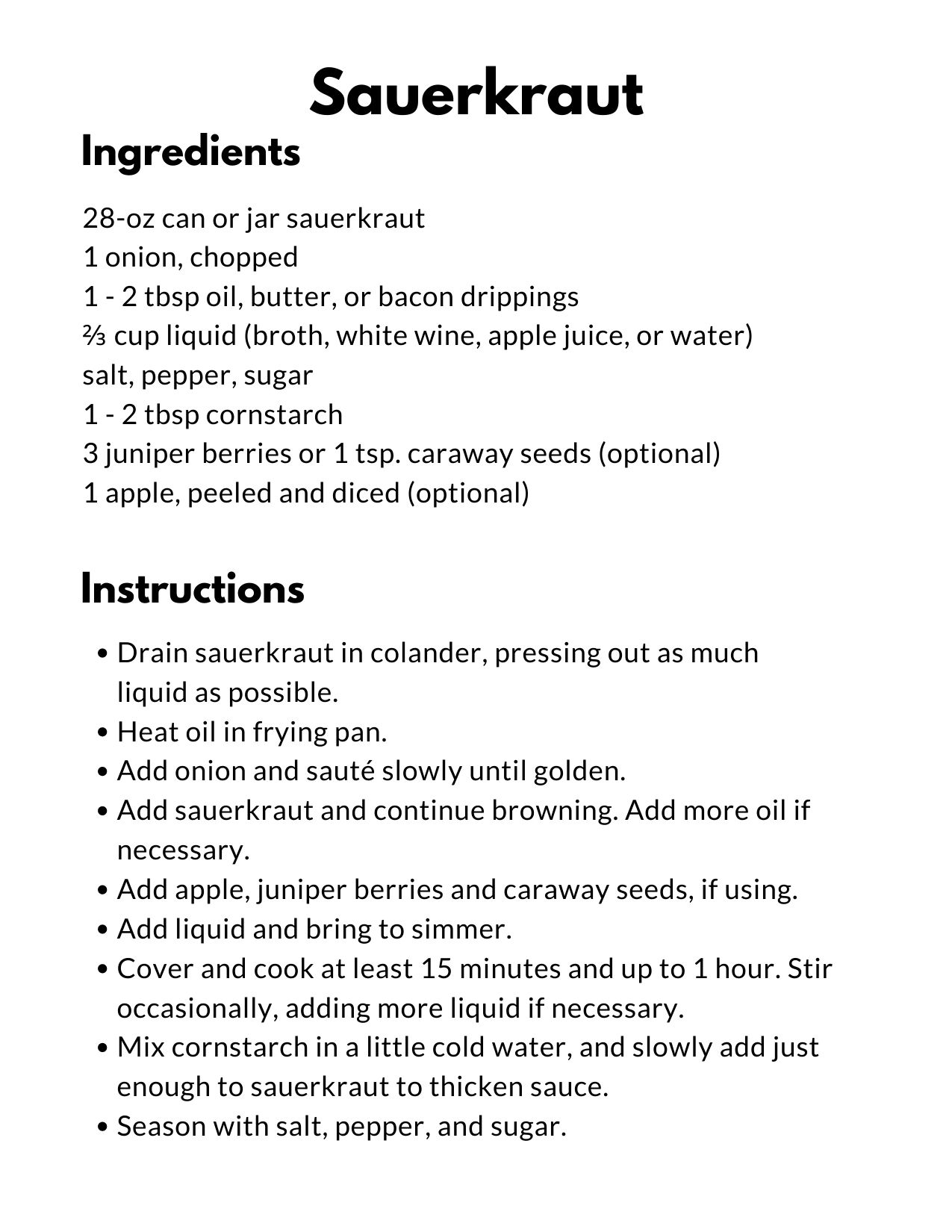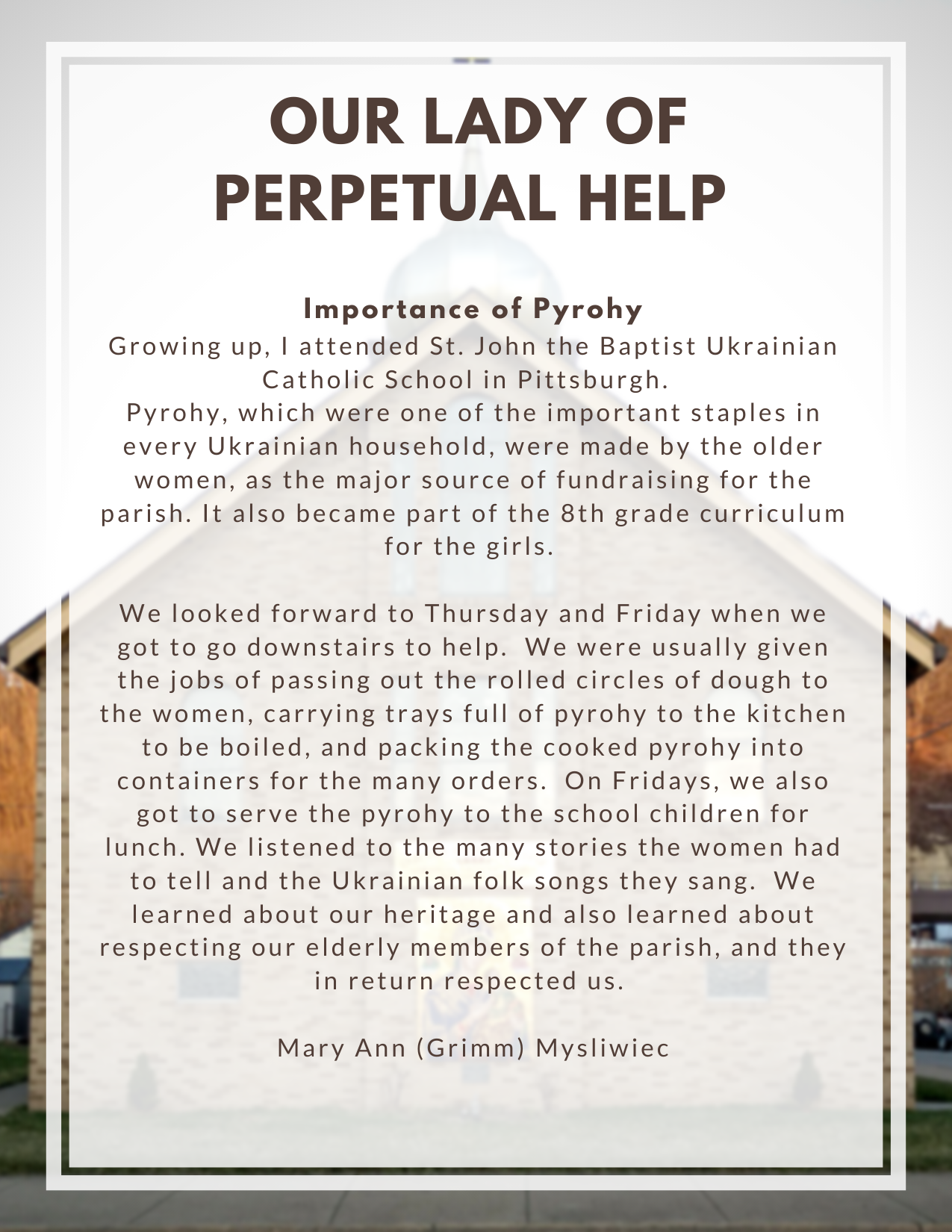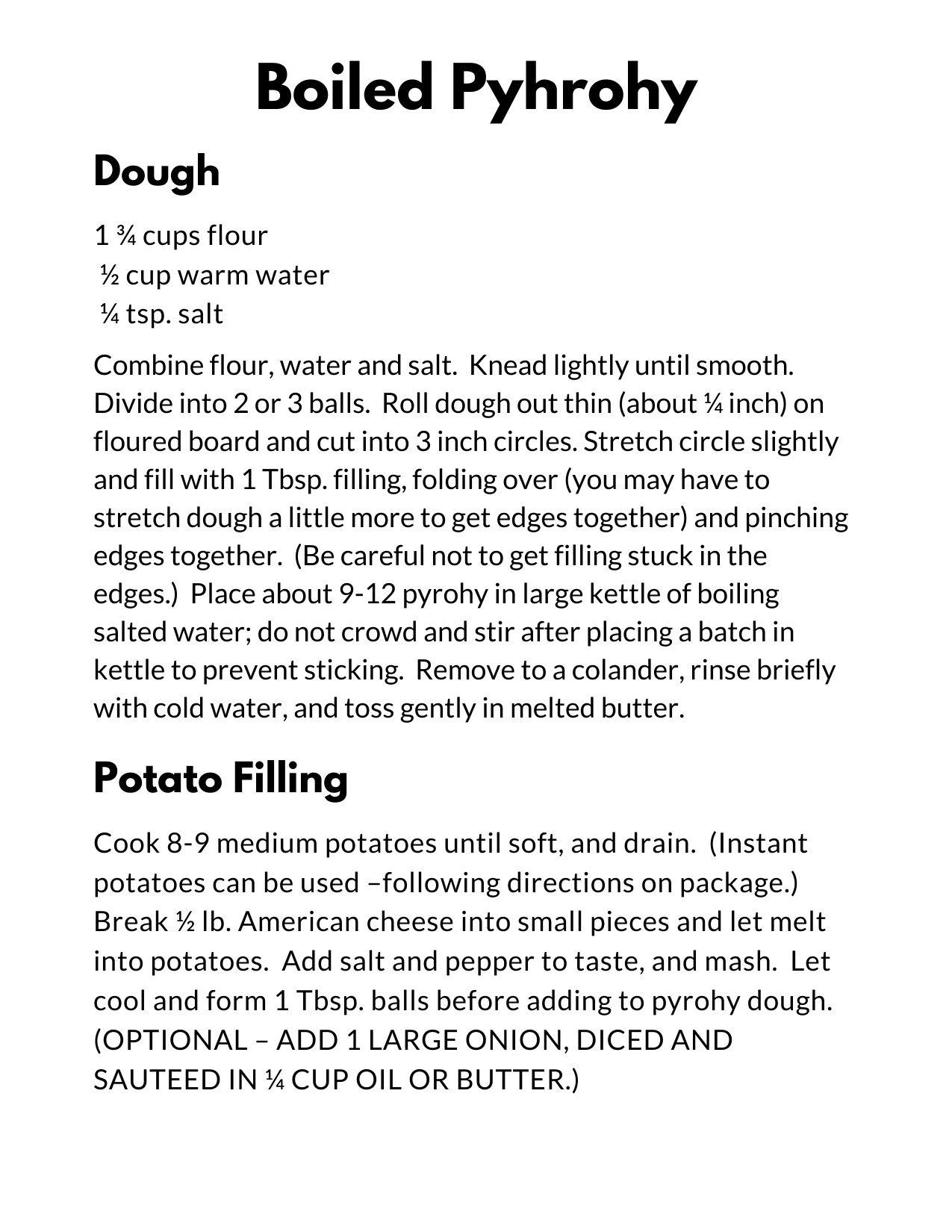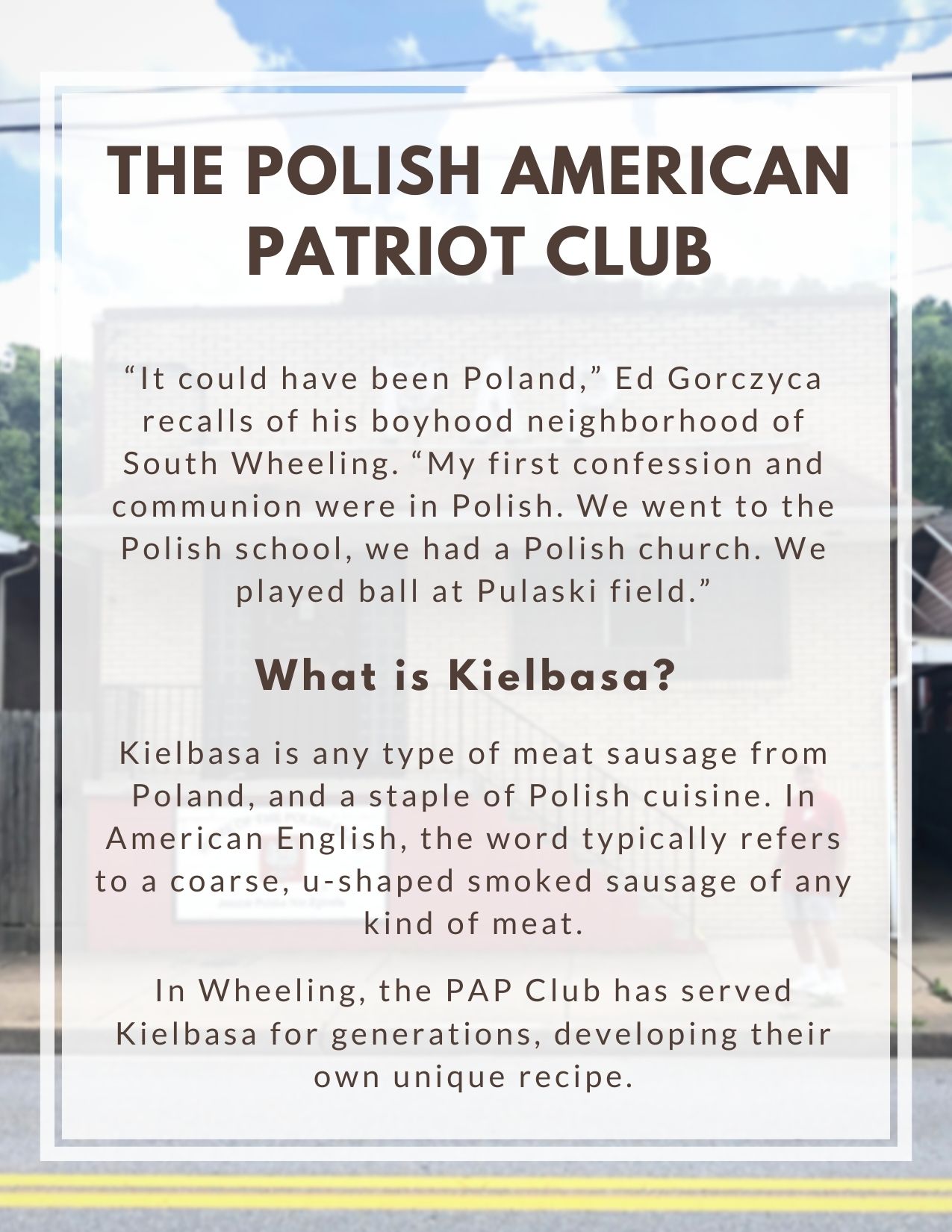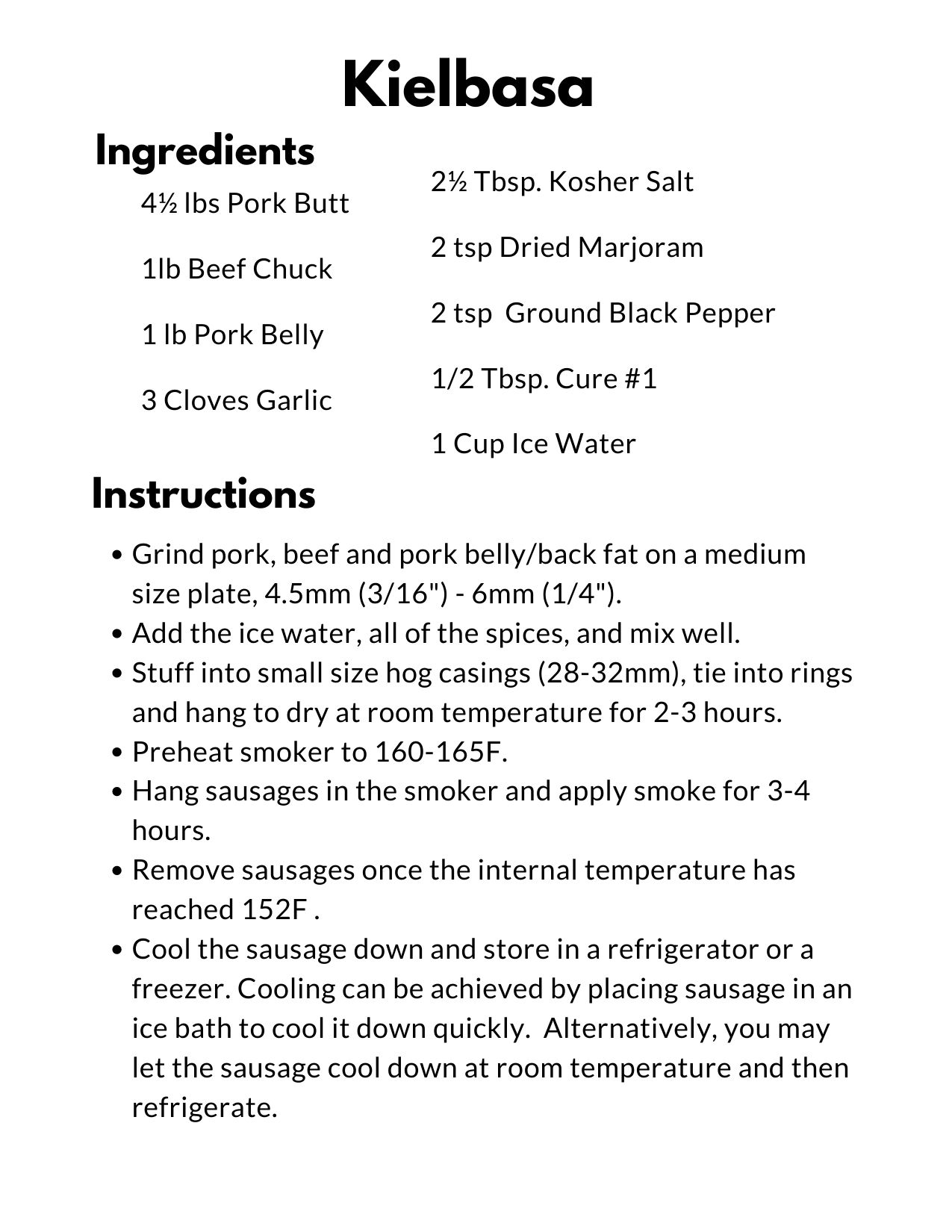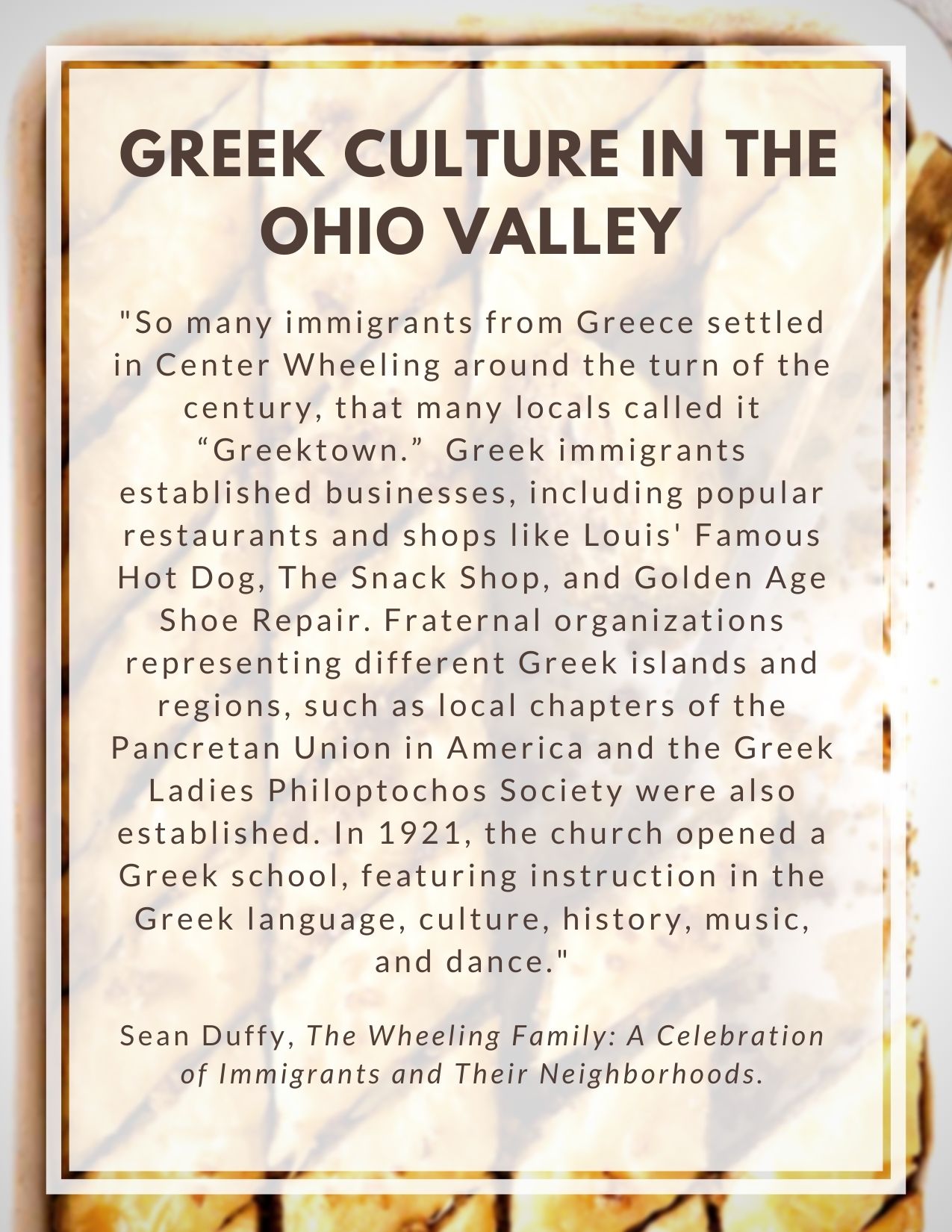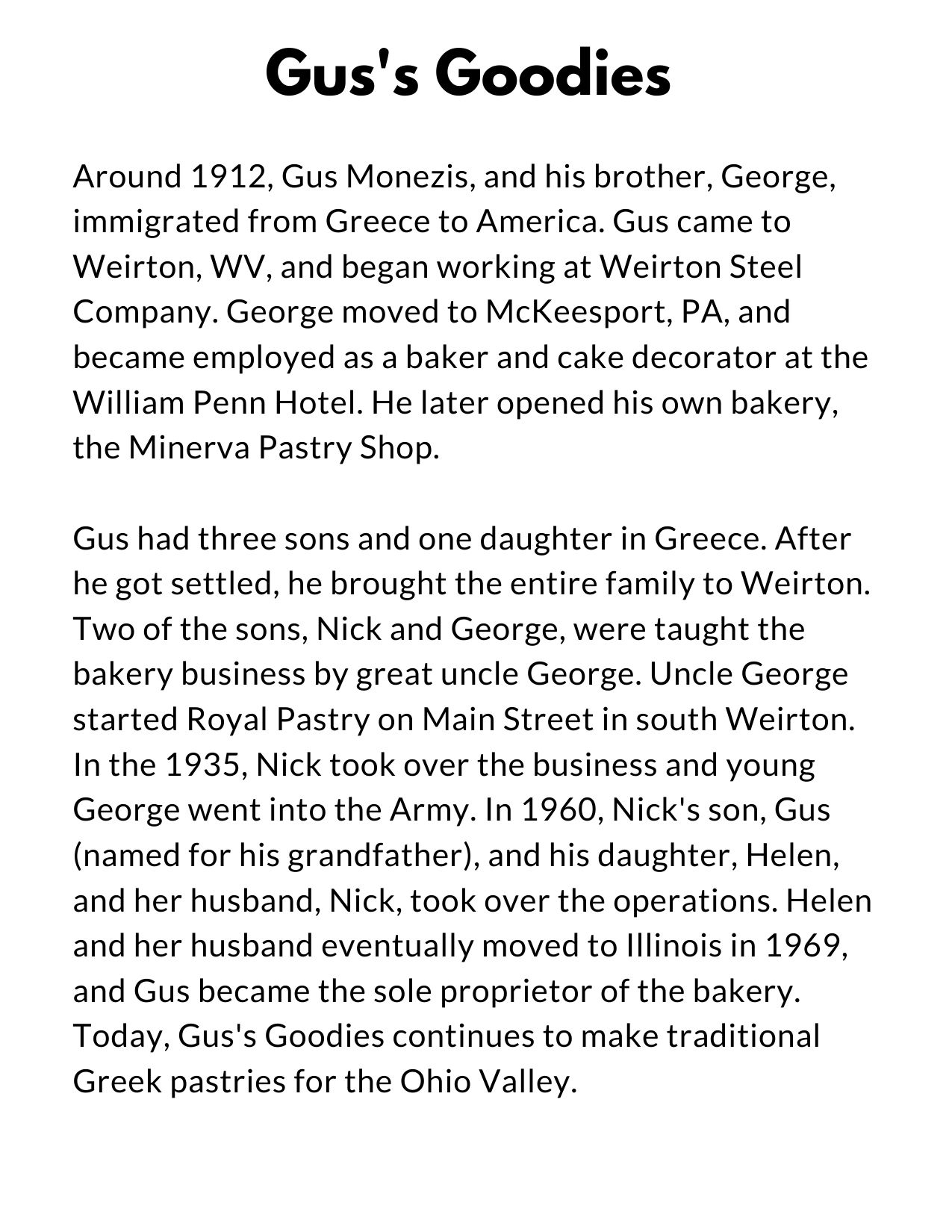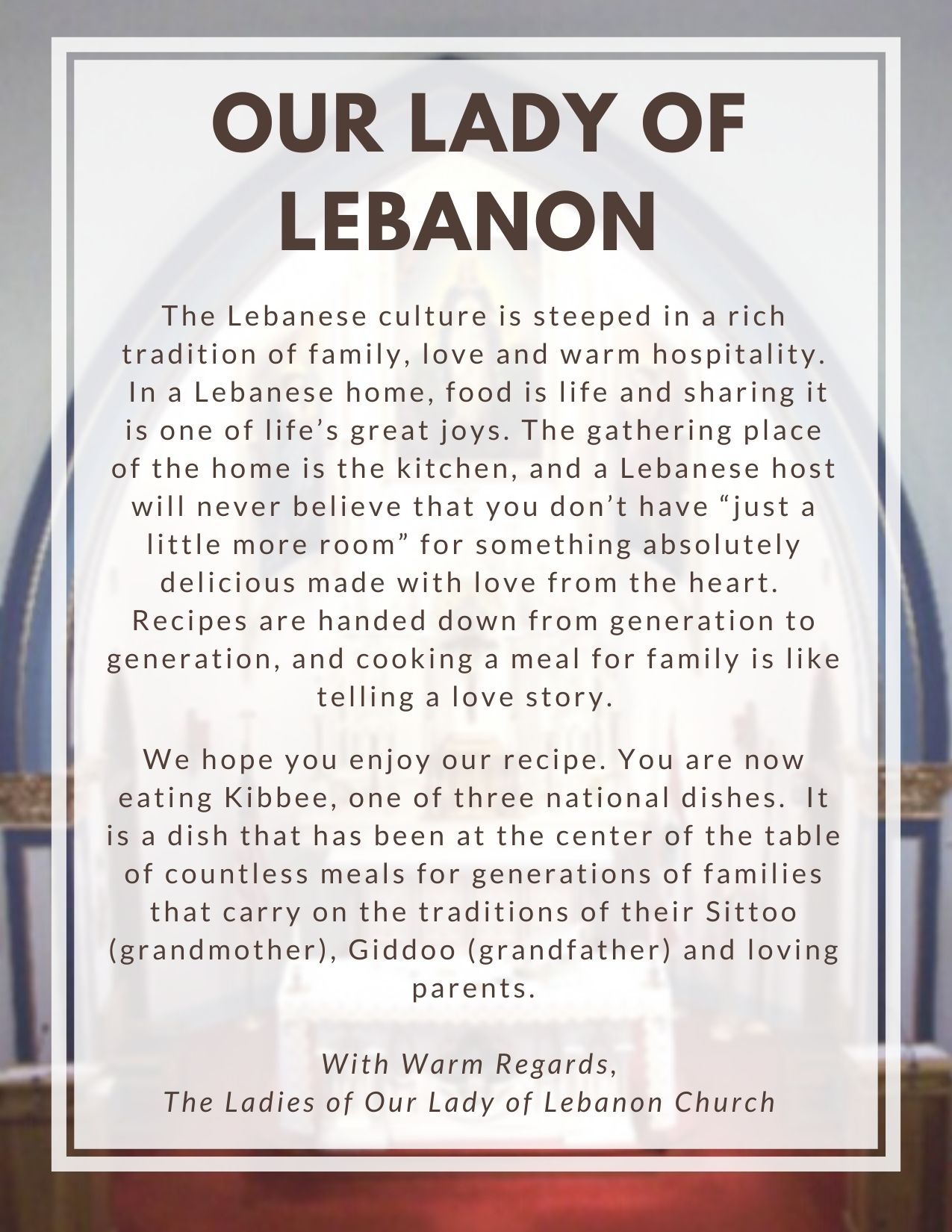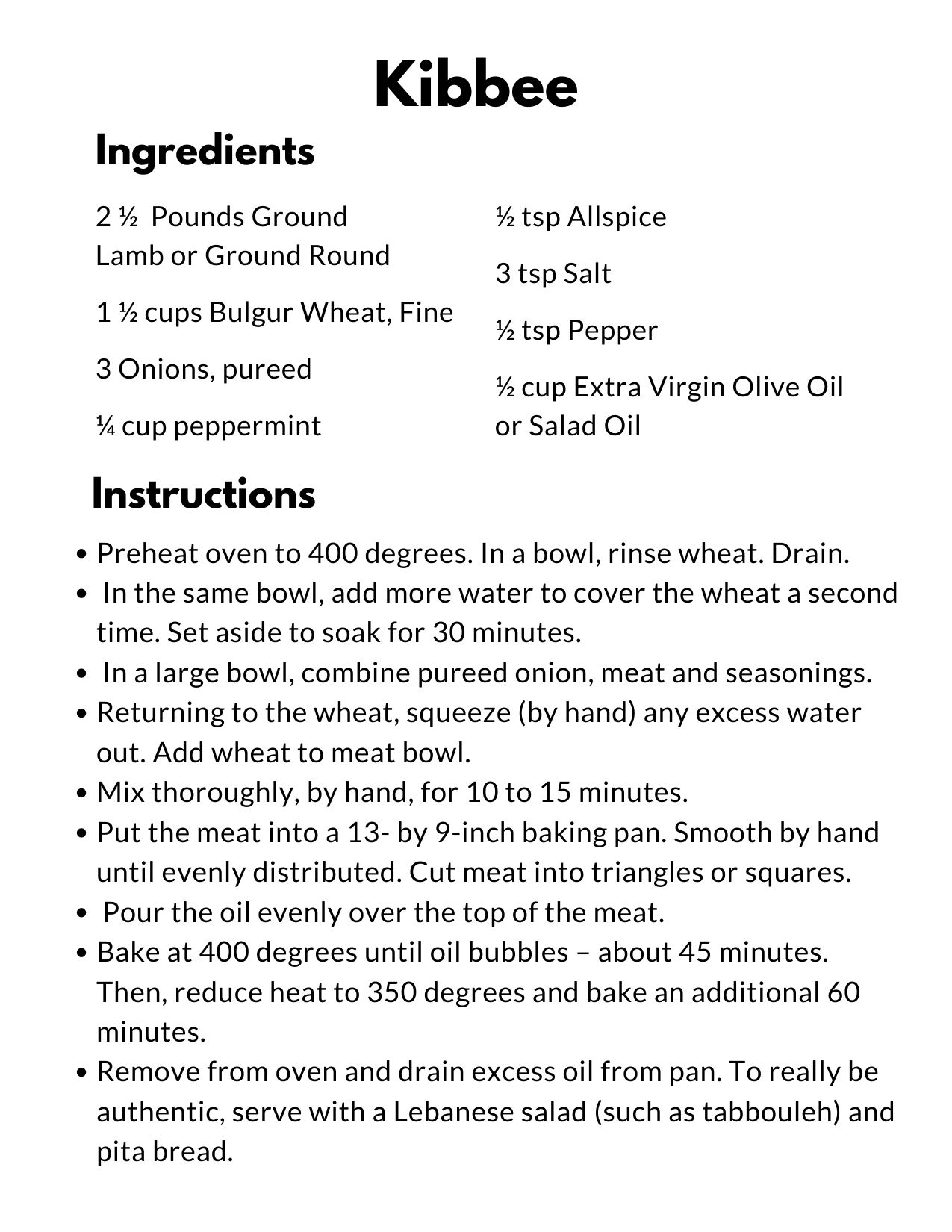They came from places like Galicia in Ukraine and Zahle in Lebanon. Or Italy or Ireland or Poland or Germany. They settled in Ritchey Town, Bethlehem, North Park and, especially, South Wheeling.
The carried family names like Ghaphrey, Shaheen, Zimmer, Becker, Sparchane, Pockl and Paluch.
They became merchants, miners, steelworkers, saloon keepers and brewers.
They fled war, famine, religious prosecution, pogroms and other travesties such as ethnic cleansing and land grabs.
They brought food, richly historical food — kibbeh, mettwurst, pierogies, parmagiana, kielbasa and sauerkraut.
They immigrated to America. They came to Wheeling, West Virginia.
A year ago, some of those culinary specialties were showcased in the inaugural Wheeling Heritage Food Tour. Participants included Our Lady of Perpetual Help, The Polish American Patriot Club, St. Paul’s Evangelical and Our Lady of Lebanon Maronite Roman Catholic Church.
The South Wheeling Preservation Alliance sold tickets and provided Baklava to tourists amidst the backdrop of their new museum.
Then COVID immigrated to the valley, canceling a majority of common events and activities, including this year’s Wheeling Heritage Food Tour.
But just like the perseverance and survival of their ancestors, these groups have found a way to adapt.
Our Lady of Perpetual Help Still Pinching Pierogies
On just about any Tuesday afternoon, you can hear the humming of an industrial dough roller inside a gold-domed church annex just North of the ‘Welcome to Benwood’ sign in South Wheeling.
Earlier that day, John Paluch mixed the 30 pounds of flour, water and salt mixture into a simple noodle-type dough. Now, he’s flattening it with the roller and spreading it out on a stainless steel table where he will repeatedly run a pierogi cutter across it, making the cut-outs which will receive the various fillings. Imagine an abdominals exercise wheel made of stainless steel with pierogi-shaped blades strung along its circumference – that’s what John is working with!
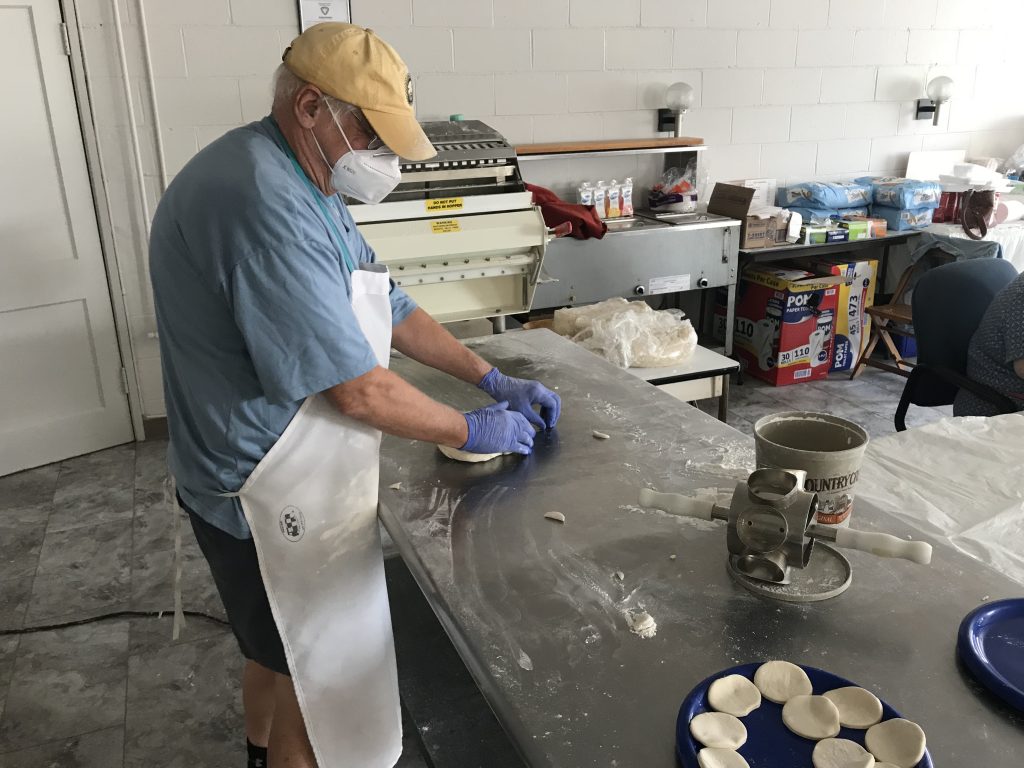
“I’m the only roller, so if I take a week off we can fall behind quickly,” Paluch yelled over the din of the machine. “Most of us are getting up there in age and rolling is a demanding job.” Olga Skvarka, who volunteers for the congregation, is still pinching pierogies at the age of 95!
This Ukrainian/Polish crew of barely a dozen parishioners can regularly produce 80 dozen sauerkraut or cheese/potato/onion-filled pierogies per two-day period (fun fact: the Ukrainian Church in the Carnegie area of Pittsburgh offers a Jalapeno version). During the holidays, this number can skyrocket to 300 dozen!
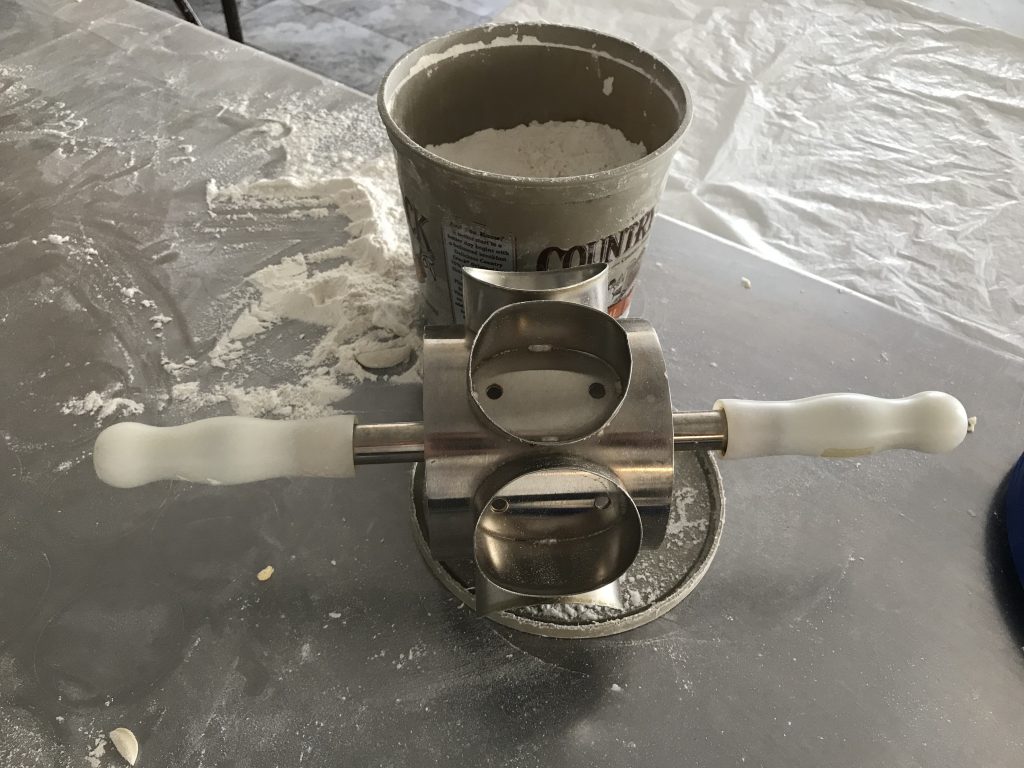
“Producing that many, we have to do them in specific batches because when they’re completed, they all look the same,” Paluch quipped.
And that’s not counting the weekly supply of cabbage rolls – anywhere between 60 to 150 depending on pre-orders or other demand – which they make on Sundays. “It tends to slow down by mid-Summer and sometimes we can take a week off,” according to Paluch.
Secrets to success: When making cabbage rolls at home bake the Basmati rice used in the cabbage rolls and bake the sauerkraut (pierogi stuffing) at 350 degrees for two hours then press out remaining liquid. Add Lawry’s seasoning salt and Allspice as flavoring agents.
Once cut, the pierogi dough chunks are delivered to the ‘pinching’ table where Patricia Pockl, Barbara Sago, Elaine James and Mary Ann Mysliwiec, among others, fill the dough with the particular filling and ‘pinch’ the edges shut manually.
Next, the pierogies are delivered to kitchen man Mike Pockl who boils them, then coats them in butter or margarine (Mike seems to use these terms interchangeably). Finally, the finished product is placed on Styrofoam trays and bagged for cold-storage until sale day.
If you want a taste of this Ukrainian tradition, you can order ahead by calling ahead to 304-232-1777 or walking in. Pick-ups take place on Thursdays from 9 a.m. to 4 p.m. at Our Lady of Perpetual Help Ukrainian Catholic Church located at 4136 Jacob Street.
Our Lady of Lebanon Church Takes Lebanese Food Festival Online
Down on Eoff Street, Father Chidiak and his Our Lady of Lebanon Maronite Roman Catholic Church members have just closed orders for their first online Lebanese Food Festival.
“This is the first time in 87 years we’ve had to cancel our Lebanese Festival which is typically held at Oglebay Park and brings thousands of visitors from across the country,” said Chidiak. “Although we could not hold our Mahrajan (festival) due to COVID concerns, we are excited to share our foods with our church and the greater Wheeling community.”
Those who pre-ordered will get to enjoy Zaatar and pita bread, stuffed grape leaves, spinach and feta pies and much more later this month when pick-ups begin.
Carry on the Tradition at Home
While we can’t be together to enjoy a Cultural Food Tour this year, re-creating these traditional recipes at home is a great way to make memories with your loved ones and connect to our heritage. Scroll through to learn more about these institutions and how to make a few of their signature dishes.
[template_part type="video" title="Highlights and stories from last year's Cultural Food Tour" description="" url="https://youtu.be/N5rIZBZHkM4"]• Rich Wooding has been a Correctional Officer with the State of Ohio/Belmont Correctional Institution for more than 25 years. He received a Bachelor’s Degree in Mass Communication and Journalism with a minor in Philosophy from Lock Haven University of Pennsylvania in 1993. He is a U.S. Navy veteran, serving from 1985-89.


